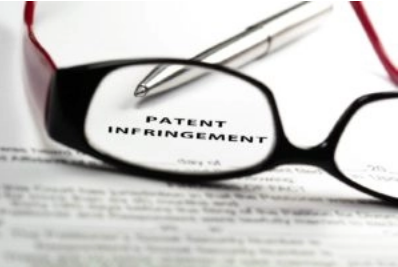What Is Patent Infringement?

Patent infringement occurs when someone makes, uses, sells, offers for sale or imports an invention without the permission of the patent owner.
A patent issued by the United States Patent and Trademark Office (USPTO) provides its owner with the right to exclude others from these activities.
Types of Patent Infringement
There are various types of patent infringement. Schedule a consultation with a patent litigation attorney to analyze your situation and determine whether you have a claim for patent infringement.
Direct Infringement
Direct infringement occurs when someone uses, produces, sells, offers to sell, or imports the patented invention without the patent holder’s authorization.
Indirect Infringement (Contributory and Induced)
There are two types of indirect infringement.
Contributory infringement occurs when a third party sells, offers to sell or imports into the United States a component of a patented invention, or a material or apparatus for use in practicing a patented process that is a material part of the invention, knowing it was made or adapted for use in infringement and that does not have a substantial non-infringing use.
Induced infringement is encouraging one to infringe on the patent of another.
The following elements exemplify proof of induced infringement:
- The accused infringer encouraged infringement;
- They had knowledge that the acts induced patent infringement; and,
- The acts helped direct patent infringement.
For example, providing instructions, plans, or process information for a patented product could be induced infringement.
Literal Infringement
Literal infringement exists if the infringing product literally meets every limitation of a claim in the patent. One can avoid literal infringement if any claim element in the patent is missing or not literally met.
Doctrine of Equivalents
Even if someone has avoided literal infringement, patent infringement may exist under the doctrine of equivalents. Under the doctrine of equivalents, infringement may be found in the difference between a claim limitation of the corresponding aspect of the accused device or process is insubstantial. One test that is frequently used is the same purpose or performs the same function as the original product. Commonly, the criteria for the analysis includes the following elements:
- The infringing product performs the same function as original product;
- The infringing product functions in substantially the same way as the original product; and
- The infringing product achieves the same result as the original product.
Each claim element is examined instead of the whole invention. Every aspect of the asserted claim product must have an equivalent in the infringing product or process.
Willful Infringement
A person can commit willful infringement when their actions demonstrate a complete disregard for an existing patent. You can prove willful infringement by showing that the infringer deliberately violated the patent with the knowledge that a patent existed. Willful infringement can result in increased damages.
How Are Patents Enforced in The United States
Federal law governs patent infringement claims. In some instances, a patent owner and a company desiring to use the technology will enter into a licensing agreement. A licensing agreement permits the potential infringer to use the patented technology in return for fairly compensating the original patent holder via a royalty.
However, frequently patents are enforced via a patent infringement lawsuit filed in Federal Court. An experienced patent litigation attorney can help determine whether a claim exists and whether to file the infringement claim in federal court.
Analyzing a patent infringement case requires close examination and a detailed review of the patent’s claims. As discussed above, infringement depends on whether elements of the infringed product match those in the original patent claim.
Remedies Available for Patent Infringement
Damages
A patent owner is entitled to no less than a reasonable royalty as damages for patent infringement. There are two types of damages you can pursue in an infringement case:
- Lost profits, or
- Reasonable Royalty.
Lost profits are available if certain requirements are met. Lost profits are not easily established. Our firm can analyze the facts of your dispute and provide you with advice on this issue. However, the patent laws provide a patent owner is entitled to no less than a reasonable royalty. In assessing what a reasonable royalty should be many factors must be considered. The court awards royalty-based damages if lost profits are indeterminable.
Injunctive Relief
As a patent owner, you should seek the counsel of a patent litigation attorney. An injunction aims to prevent future infringement of your patent. There are two types of injunctive relief available in patent infringement cases.
A court may grant a preliminary injunction early in a civil action to prevent the infringer from violating your patent rights throughout your lawsuit.
The court will analyze the preliminary injunction based on the following four criteria:
- The likelihood of success of the claim;
- The likelihood of irreparable harm if the court does not issue the injunction;
- Whether the threatened harm to the patent holder outweighs the harm the injunction will cause the infringer; and
- Whether the injunction serves the public interest.
If a patent owner prevails in its lawsuit, the Court may issue a permanent injunction that prohibits infringement of their patent. There are restrictions on whether an injunction is appropriate. We can evaluate whether your case meets those requirements.
Why You Should Hire a Patent Litigation Attorney
Patent infringement lawsuits are complex and require the counsel of an experienced patent litigation attorney.
The Polasek Law Firm handles various areas of intellectual property law, including patent litigation, trademark litigation, trademarks, and contingent fee patent litigation.
The Polasek Law Firm provides clients with individual and prompt attention with an in-depth analysis of claims and provides an initial consultation to all prospective clients free of charge.
Contact us today!
